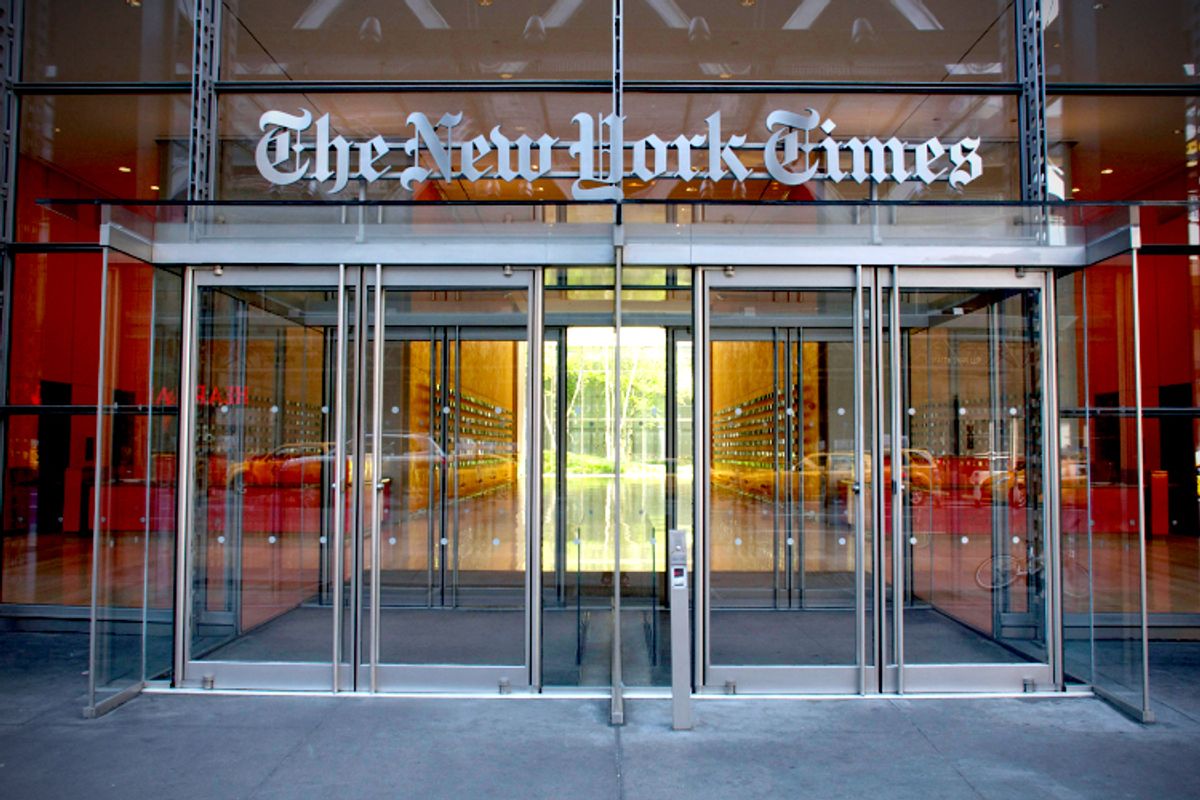This weekend New York Times public editor, Margaret Sullivan, penned a a column examining the paper's coverage of Iraq -- both back in 2003, and during the current crisis.
Her conclusion: Some of the coverage in 2003 was "flawed, driven by outside agendas and lacking in needed skepticism." And today readers are still concerned by the hawkish, neoconservative views espoused by Op-Ed columns and news reporting that relies heavily on unnamed sources.
Sullivan writes that the two situations in Iraq -- 2003 and now -- are very different, and the presidential response may very well be different. (Sullivan points out that President Obama, thus far, has stated that no troops will be placed on the ground.)
However, readers are worried that the Times coverage won't vary from its rather pro-Iraq intervention, voice in 2003. Sullivan writes:
"Nevertheless, given The Times’s troubled history when it comes to this subject, readers have good reason to be wary about what appears in the paper about military intervention in Iraq. And based on what I am already hearing from them, they are.
"Many readers have complained to me that The Times is amplifying the voices of hawkish neoconservatives and serving as a megaphone for anonymously sourced administration leaks, while failing to give voice to those who oppose intervention.
"I went back with the help of my assistant, Jonah Bromwich, and reread the Iraq coverage and commentary from the past few weeks to see if these complaints were valid. The readers have a point worth considering. On the Op-Ed pages and in the news columns, there have been very few outside voices of those who opposed the war last time, or those who reject the use of force now.
"But the neoconservatives and interventionists are certainly being heard."
Sullivan points out specific examples: Recently there was a profile done of historian Robert Kagan, a pro-interventionist in 2003, an Op-Ed by Ann-Marie Slaughter calling for intervention in Syria, and several articles leaning heavily on use of unnamed administration sources without giving a sufficient nod to those who oppose military intervention. (A specific example can be found here.) She excludes the Times's "on-the-ground reporting" on the subject from her critique.
A "notable development," according to Sullivan, is Thomas Friedman's column not supporting intervention, as opposed to his 2003 support.
In sum, the paper of record must also learn something from its questionable history with Iraq intervention, and "think hard" about whose opinions are heard to rebuild trust with its readers on the subject.

Shares